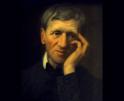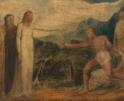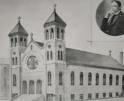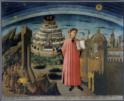
Culture
On the president's tour, the Liberator wrote that Polk "was met by city authorities, the military, and a procession of citizens; and though his reception was not an enthusiastic one . . ."
On June 29, 1847, Bishop John Bernard Fitzpatrick wrote in his journal: "The President of the U. States arrives in the City, is received by the authorities and citizens. A procession is made through the principal Streets. It commences to rain about the time of his arrival by the cars and continues during the early the day."
The president in question was James Knox Polk of Tennessee. Polk rose from anonymity in 1844 when the Democratic party was split. It lacked a consensus nominee for the presidency, with delegates split be-tween former President Martin Van Buren, Lewis Cass, and James Buchanan. The two most prominent issues were slavery and expansion. Since Van Buren opposed expansion, former President Jackson tapped Polk, and he soon became president. The unlikely win is where the phrase "dark horse" comes from.
Upon entering the White House, Polk inflamed tensions with Mexico, sparking the Mexican-American War. The annexation of Texas caused a dispute over where Texas ended and Mexico began. Having never acknowledged Texas independence, Mexico claimed the Nueces River was the border, while the Republic of Texas and now the United States maintained it was the Rio Grande. In April 1846, Gen. Zachary Tay-lor led U.S. troops across the Nueces River into the disputed territory, prompting Mexican troops to cross the Rio Grande, and the two sides skirmished on April 25, 1846. Both sides maintained their position, claiming the other had encroached upon their territory, and war was declared the following month.
The Mexican-American War was controversial, especially in the anti-slavery Northeast. The Massachusetts Legislature found the war unjust, refusing to appropriate $20,000 to furnish a regiment. Lawyer Caleb Cushing took it upon himself to fund a group, the only one from Massachusetts. The regiment arrived in Mexico City after fighting had stopped.
Another reason for the war's unpopularity in the region was religion. Mexico had a predominantly Catho-lic population, so many Catholics in America refused to go to war. Some enlisted men would go on to desert the army in Mexico over religion. There was a burgeoning fear among some Catholics that this was a war on Catholicism. With the rise of the virulently anti-Catholic Native American Party, later known as the Know-Nothings, this was not an unfounded fear. Polk needed help to dissuade this notion.
On May 19, 1846, Polk met with his Secretary of War William L. Marcy and the Archbishop of New York John Hughes. He wrote in his diary, "Our object was to procure his aid in disabusing the minds of the Catholic Priests and people of Mexico in regard to what they most erroneously supposed to be the hostile designs of the Government and people of the U.S. upon the religion and church property of Mexi-co."
Polk explained to Hughes that the war was not a hostile act against the religion. He also asked Hughes for help finding Spanish-speaking priests who could serve as chaplains at the front. Polk wrote, "Bishop Hughes at once said he thought such a visit to Mexico and having a few catholic priests with the army would have a good effect, and expressed his entire willingness to cooperate with our government in gain-ing such aid as was in his power." Polk also called Hughes "a highly intelligent and agreeable man."
In the summer of 1847, with the successful invasion of Mexico City only months away, Polk left Wash-ington for a tour of the Northeast. He made stops across cities in Pennsylvania, New York, Connecticut, Massachusetts, New Hampshire, and Maine. Polk did not write much in his diaries because he intended for an advisor to write a history of the tour and insert it in the diary, but that never happened.
The Pilot reported on the visit, though it was more focused on an alleged incident involving the anti-Catholic Native American Party. It reported that Polk was cordially met because of his job title, save for some folks. "The Natives could not help showing their teeth on the occasion," The Pilot reported. It then cites a story from another local newspaper of the time, The Chronotype, to relate what happened that day:
"We are painfully obliged to say that the harmony of the occasion was somewhat marred by the cantanker-ous conduct of one of the ghosts, to wit that of the Native American Party, which sublimely refused to march in the procession behind the 'foreign paupers,' the said ghost having pledged itself to go to the death against all paupers but domestic ones."
Per The Pilot, "the Natives alluded to above, were about one hundred and twenty-five truckmen, who re-fused . . . To walk behind the 'damned Irish.'" It then reports the leader of the truckmen, Captain Coy, fled the conflict in Mexico "when he heard that the 'bloody papists' in Mexico could fight."
Another Boston newspaper, the abolitionist Liberator, authored a scathing article of its own. It viewed the war in Mexico as nothing more than an attempt to expand slavery further west, a commonly held belief. On the president's tour, the Liberator wrote that Polk "was met by city authorities, the military, and a procession of citizens; and though his reception was not an enthusiastic one, it was a very wet one, for the weather was quite rainy." It writes Polk visited Bunker Hill without any of his slaves in tow.
"Of the thousands that crowded the streets of the city, very few were actuated by any other feeling than that of curiosity to see the man; and few, faint, and far between, were cheers that went up as he passed along through the various streets. For what does such a man deserve to be honored?" For the Liberator, Polk did not deserve respect because he held men in bondage.
The U.S. won the war in Mexico, claiming 55 percent of Mexico's territory in the process. Disagreements over whether the new territory would expand slavery led directly to the Civil War. Polk did not live to see it, having died of cholera months after leaving office. A devoutly religious man, he attended Catholic and Protestant services while in office. He was baptized a Methodist on his deathbed.
Matthew Radulski is an archivist for the Archdiocese of Boston.
Recent articles in the Culture & Events section
-
Newman on the process of conversionRussell Shaw
-
We work like we change lives, because we doMichael Reardon
-
Scripture Reflection for Oct. 27, 2024, Thirtieth Sunday in Ordinary TimeDeacon Greg Kandra
-
A home for Lithuanian Catholics in BostonThomas Lester
-
What all Souls' Day is all about?Russell Shaw


















